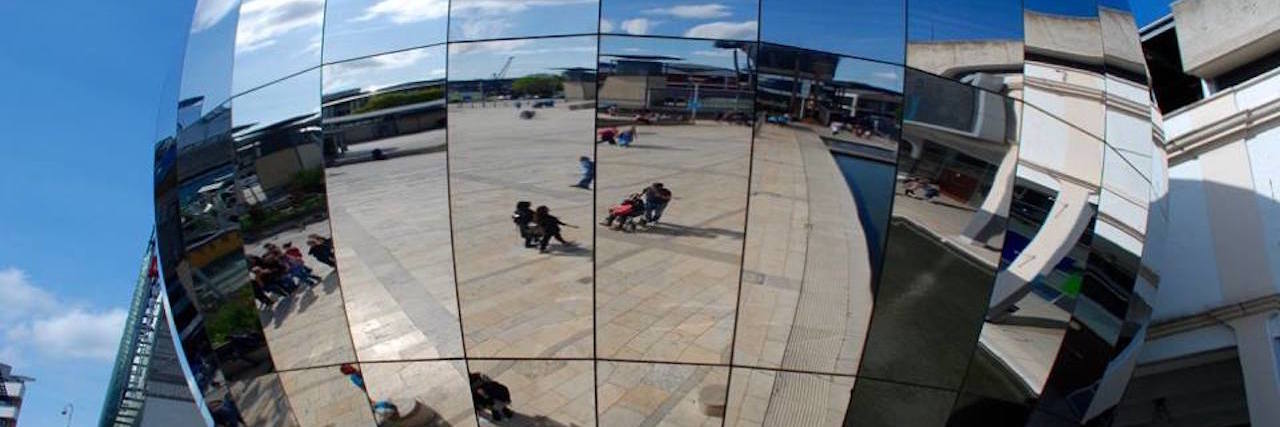Needing to Use a Mobility Aid Some Days Does Not Make You 'Weak'
A couple of years ago, for my birthday, I was given a wheelchair. It’s not a gift I’m sure many 26-year-olds would want, and for me it was bittersweet. It felt sad to be getting a mobility aid for my birthday when at my age I should have been getting something, well, fun. It was also hard for me to accept that I needed it, and for those who loved me to accept it too. How could someone who, just over a year before, had been running half marathons and walking or cycling miles every day now need a wheelchair to leave the house? I hadn’t had a terrible accident; I had just fallen ill and never recovered.
I was grateful to receive it though, because for me, it was a way for me to become a greater part of the outside world again. My illness means I am easily exhausted, and one thing you realize when you have little energy is that everything is exhausting. I can walk a bit, usually enough to get around the flat, but I can’t walk far, and this makes leaving the house virtually impossible. The wheelchair was a way in which I could go out from time to time and only deal with the fatigue from the extra stimulation, rather than the total exhaustion I’d experienced when trying to venture out before.
There aren’t really any photos of me in my wheelchair. I’m embarrassed. I’m embarrassed that I need it, and I’m worried about being seen by people who knew me before, and having them know what I’m like now. I want to be remembered for who I was, not to be seen as a disabled person. However, my desire to be a part of the world again in any way I can, outweighs my concerns about how people perceive me.
I shouldn’t have to feel shame for using a wheelchair though. The perception our society has of disability means there is an ingrained view that if you are able to walk at all, you shouldn’t use a wheelchair, and doing so makes you weak. I saw a video recently of someone’s grandmother being given a wheelchair for her birthday, and she responded with such outrage and kept insisting “I won’t be using that” while her family tried to explain that it would make it easier to take her to appointments at the hospital because she has difficulty walking due to pain. This perfectly demonstrates the way in which people feel about the use of a wheelchair by those who can walk.
Yes, I am able to walk, but using a wheelchair means I am able to do things I wouldn’t otherwise be able to do. In my local shopping center there are disabled spaces and accessible routes to the shops, but without a wheelchair I still couldn’t access them because I can’t walk that far. I also can’t stand up for long, so even if the distance was manageable, I would still have to find a seat or end up sitting on the floor.
Mobility aids shouldn’t have to be a last resort. They are aids to give a greater quality of life to those who need them, and we shouldn’t have to feel ashamed or embarrassed that we do. If anyone is struggling with their mobility I would encourage them to look into using aids, because if you have the help you need, it’s easier to enjoy taking part in activities. This is particularly true for energy-limiting conditions like ME where saving energy expenditure where you can makes a huge difference both at the time and afterwards.
I would also like to make one final comment about disabled parking and toilets. It’s easy to judge if we see someone using these who doesn’t look obviously disabled, I know I’m guilty of this myself. But there are many invisible disabilities that mean people may be able to walk without aids, or have other limiting conditions, that mean that the use of these facilities makes a huge difference to them. I know that I feel uncomfortable using them if I’m not using my wheelchair, which I sometimes don’t if I won’t be walking far, but I need the use of them because I couldn’t walk the distance otherwise. I will also sometimes use disabled bathrooms because I couldn’t climb the stairs, or stand to queue, or I would just find the noise in the communal bathroom too much. I worry about being judged for using them as I appear to be young and healthy, but every step I take is a struggle.
So I would urge you to be kind to those you see using aids or disabled facilities. They may not meet your expectations of what a disabled person looks like, but there could be a real internal struggle going on that you can’t see. I hope we can change the view society has of disability, so that people don’t feel “weak” for using aids, and can instead be proud they are doing what’s best for themselves in difficult circumstances.

